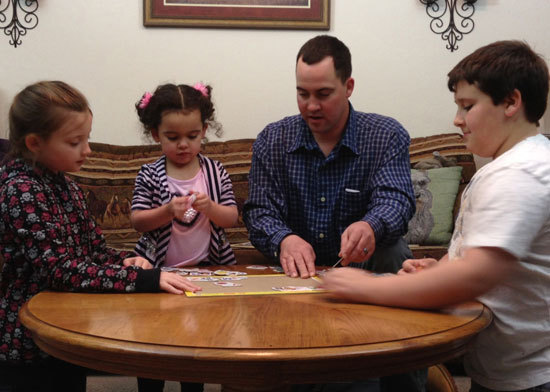 (Note: This is the second of several short commentaries on recent Supreme Court decisions. See the first HERE)
(Note: This is the second of several short commentaries on recent Supreme Court decisions. See the first HERE)
There is little more heart-rending than the sorrow of a child.
The sorrow of a child—and of her adoptive parents—created one of the Supreme Court’s more compelling cases this term. I was happy to be cited extensively in one of the opinions. And, much more importantly, happy that the Court acted to minimize the sorrow of the child and of her adoptive parents.
In 1978, Congress passed the Indian Child Welfare Act (ICWA). By this measure, Congress invaded yet another area traditionally governed by the several states: adoption and relinquishment of parental rights.
The ICWA had a worthy purpose: to prevent tribes from being decimated by the wholesale adoption of Indian children by non-Indian families. However, the ICWA has at least two serious flaws. First, it can lead to sorrow and injustice. Second, outside the regulation of military personnel, the Constitution gives Congress no authority to meddle in adoptions or parental rights—even those involving Native Americans.
The unusually-named case of Adoptive Parents v. Baby Girl involved a father who (a) had disclaimed his parental rights, (b) showed no interest in supporting his child, and (c) facilitated an adoption. But after the child already had spent two years with, as the Court said, “the only parents she had ever known,” he decided he wanted her back.
The case arose in South Carolina and that state’s law did not allow him to break up the adoptive family this way. So he relied on the ICWA on the grounds that, through his parentage, his child was part Cherokee. Precisely 3/256, or 1.2% Cherokee.
The Cherokee tribe apparently grants membership to people with tiny amounts of Cherokee lineage. This, the biological father argued, granted him a special preference under the ICWA.
The lower courts agreed with him, and took the child from her adopted parents. But the Supreme Court reversed.
In a decision written by Justice Alito, the Court examined the language of the ICWA closely. For technical reasons, it ruled that the statute did not, in fact, entitle the biological father to the preference he claimed.
But there also was a more fundamental constitutional issue at stake: What enumerated power gives Congress authority to pass the ICWA in the first place?
Justice Thomas wrote separately to explain that he was construing the statute narrowly because otherwise the Court might have to rule the ICWA unconstitutional. (Courts generally try to resolve cases so as to avoid constitutional issues.) Justice Thomas cited extensively from my own 2007 study of federal power over Indian tribes.
Federal power over Indians has several constitutional sources. The two of greatest importance are the Treaty Clause and the Indian Commerce Clause. Under the Treaty Clause (Article II, Section 2, Clause 2), the federal government may enter a treaty with a tribe that deals with adoption law governing that tribe. But no treaty was involved in the Baby Girl case. In fact, the federal government stopped making treaties with tribes 150 years ago.
The Indian Commerce Clause (part of the larger Commerce Clause, Article I, Section 8, Clause 3) states that “Congress shall have Power . . . to regulate Commerce . . . with the Indian tribes.” Some commentators, and indeed the Supreme Court itself, have claimed that this sparse language gives Congress “plenary” (total) power over Indians.
My own investigation found this claim to be baseless. The Indian Commerce Clause was designed give Congress little more than authority to regulate commercial trade between U.S. citizens and tribes.
In fact, the historical evidence is overwhelming: Adoptions are certainly outside the scope of the Indian Commerce Clause. That’s what my article on the Indian Commerce Clause documented, and Justice Thomas cited my findings at some length.
You can read the Supreme Court opinions, concurrence, and dissents here and my article on the Indian Commerce Clause here. My article includes citations to previous writers of all views.
*****
An Acknowledgment: My investigation into the Indian Commerce Clause was objective. However, my initial interest stemmed partly from friendship with Lisa Morris, who like me was involved in Montana civic life for many years. Lisa is the widow of a full-blooded tribal member. She has devoted much of her life to correcting injustices and other harm inflicted by dysfunctional federal Indian policy.
She is an exceptional, and exceptionally courageous, individual.
- SCOTUS Defends Property Rights, but Raises Constitutional Questions - April 27, 2024
- The Truth about the Much-Abused Commerce Clause - February 28, 2024
- The Meaning of “Regulate Commerce” to the Constitution’s Ratifiers: An Update - February 7, 2024

